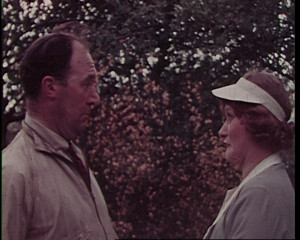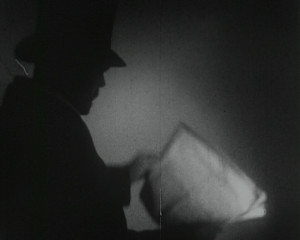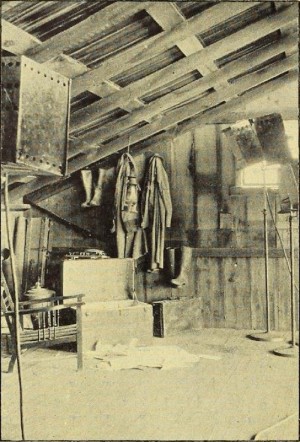"Frozen Flame, 400 ft., 16mm., photographed by Edward H. Marsh and directed by Thomas J. Perry, is a dramatic industrial film featuring the Electrolux gas refrigerator. The picture details the experiences of a man and wife in buying and using the refrigerator and illustrates its sales points. The photography is remarkably good throughout and, although the treatment is simple and direct, it is extremely clear. Perhaps this picture's most outstanding quality is its continuity excellence. A well prepared scenario was so expertly followed that there are scarcely any of the minor flaws usually found in amateur dramatic pictures." Movie Makers, Dec. 1931, 658, 684.
Documental sobre las fiestas vascas.
A documentary about Basque celebrations.
"Children playing with a box of toys in the garden at Westworth, Cockermouth. Adults emerge from the house to walk and run around in the garden." (NWFA Online Database)
"dis. an. didattici"/animated educational doc
"Life at the Pribilof Islands fur seal colony on the Bering Sea." (BC Archives)
May include some footage shot on St. Paul Island in 1946 and provided to Dr. Carl by the Fouke Fur Co., St. Louis.

A short comedy about a couple who are unable to decide on a sporting activity to do together.

"An impressionistic, experimental film commenting on politics in Europe and the United States with references to the First World War, food shortages, the Weimar Republic, the world economy and the Wall Street Crash. Uses a mixture of animated silhouette and live action" (EAFA Database).

"Galleon Gold, 1600 ft., 16 mm., produced by the San Jose Players under the leadership of John C. Waterhouse, strikes a more sober note. This entertaining drama of the youth of a venerable Spanish family, who discover the treasure trove of the Conquistadores in time to save the family hacienda from the encroachment of the lime quarries, contains much good photography, a smooth continuity, experienced acting and first rate direction." Movie Makers, Sept. 1930, 569.
"Galleon Gold, 1600 ft., 16mm., produced by the San Jose Players, deserves special mention for its smooth flowing continuity alone. Although the difficulty of securing a lucid continuity is greatly increased in a longer dramatic picture, the producers of this film have achieved perfect clarity. This film was made during a summer vacation at a mountain ranch and it seemed at first that the lack of electric current for lighting would be an insuperable obstacle since the script called for many interior scenes. The problem was finally solved by a portable motor generator driven by a gas engine which, with proper lighting equipment, made ample illumination possible." Movie Makers, Dec. 1930, 788.

"A South Shore High School student film that is an allegory on the wastefulness of war and the duplicity of those who wage it. Filmmaker Wayne Williams, who was 17 at the time, cuts back and forth between a chess game and a guerrilla theater war game to underscore the sense of importance of the fighters and the cynicism of those who control their lives - and deaths." Chicago Film Archives
Total Pages: 299